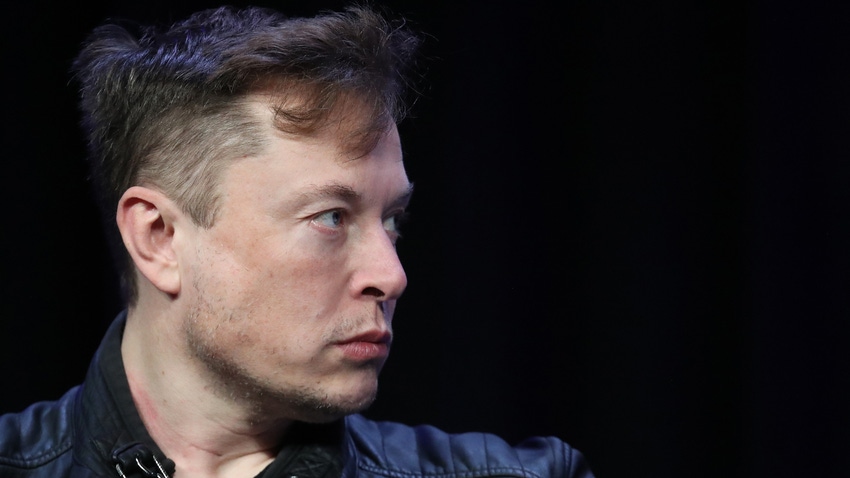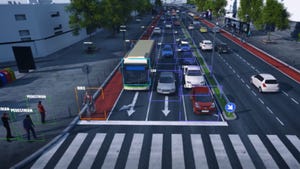Elon Musk’s TruthGPT is just one facet of a bigger war over worldviews. But is he now wanting to fix a problem he helped cause?

Years ago, two tech billionaires were talking deep into the night about the development of a machine super-intelligence and its implications for humanity.
They sharply disagreed about how this intelligence will affect society, a debate that took place at a house in the tony Silicon Valley neighborhood of Palo Alto, California. This argument would break their friendship and cause one of them to devote a fortune to counteracting the other.
The two men were Elon Musk − founder of Tesla and SpaceX and Twitter's CEO − and Google co-founder Larry Page.
“Larry Page and I used to be close friends,” said Musk in an interview on Fox News. “I would talk to him late at night about AI safety and at least my perception was that Larry was not taking AI safety seriously enough.”
They were discussing artificial general intelligence (AGI), in which machines have the broad capability to act, learn and solve problems like a human being instead of merely being expert at ‘narrow’ tasks such as playing chess. AGI has not yet arrived, but the advent of generative AI that enables machines to 'understand' human language has brought on whispers that AGI is reachable.
“I agree with (Page) that there’s great potential for good, but there’s also potential for bad,” Musk said. Humanity should not just go “barreling forward and hope for the best. … We’re going to make sure humanity’s OK here.”
The Anti-Google company
Back then, Google had just acquired AI powerhouse DeepMind in London, and Musk realized the two employed 75% of all the world’s AI talent. Also, “they had (a ton) of money and more computers than anyone else,” he said.
The danger, in his view, was this: Google is the “unipolar” and “for-profit” force that has “close to a monopoly on AI talent and computers, and the person who’s in charge of them doesn’t seem to care about safety.”
As such, Musk assumed Google would not put in adequate guardrails around AI, a technological innovation he believes could cripple civilization. Not through a Terminator-like robot, he explained, since the AI algorithms would live in data centers and the robot is just an extension.
But the AGI could, for example, use its enhanced writing abilities to influence the public through social media posts and it “potentially manipulates public opinion,” Musk said. “How would we even know?”
Power struggle at OpenAI
Musk decided to act. It is part of his quirky personality to do such a thing: He has stated in the past that his overarching reason for building Tesla and SpaceX was to preserve humanity by fighting global warming (creating electric vehicles that can be as cool as gas cars so people would buy them) and providing reusable rockets to lower the cost of space travel so people can move to Mars if Earth becomes unlivable.
In 2015, he brought together a number of AI talent as well as then Y Combinator President Sam Altman. LinkedIn founder and venture capitalist Reid Hoffman were among the backers.
Musk's goal was to create a counterweight to Google, which is a closed, for-profit behemoth. The result was OpenAI, an open-source nonprofit that he said he named. One recruit that was pivotal to OpenAI's success is current Chief Scientist Ilya Sutskever, Musk said.
Musk gave about $50 million to OpenAI and its backers together pledged $1 billion. But in early 2018, Musk believed OpenAI had fallen behind Google and proposed to run the nonprofit himself, according to Semafor, which broke the story. OpenAI founders rejected his proposal and so Musk walked away, and the $1 billion never materialized.
Musk told Fox News that he was “distracted” during this time, facing issues with Tesla and SpaceX.
Is OpenAI’s for-profit pivot Musk’s fault?
OpenAI could not pay the “astronomical” fees in training AI models on supercomputers, Semafor reported. This led to OpenAI creating a ‘capped profit’ subsidiary under its nonprofit parent. Microsoft stepped in by investing $1 billion in 2019 and reportedly another $10 billion this year.
OpenAI is the creator of ChatGPT, the enormously popular chatbot that has put AI in the public consciousness with its expert ability to write prose and poetry as well as code. It is the best known and most used generative AI tool from OpenAI, which also created text-to-image generator DALL-E.
ChatGPT, and its successor, GPT-4, are fast being embraced by companies in many industries and promises to usher in a new type of internet, according to pundits. It has sparked a race with Google, which has introduced a ChatGPT rival called Bard, and also reportedly is working on a brand new search engine called Magi that can answer queries conversationally.
Today, Musk wants to come up with a counterweight to OpenAI, which he said has become a closed, for-profit entity. He floated the idea of creating TruthGPT, which will be a “maximum truth-seeking AI that tries to understand the nature of the universe.”
“This might be the best path to safety in the sense that an AI that cares about understanding the universe is unlikely to annihilate humans because we are an interesting part of the universe,” Musk said, before adding the caveat, “hopefully, it would think that.”
Read more about:
ChatGPT / Generative AIAbout the Author(s)
You May Also Like


.jpg?width=700&auto=webp&quality=80&disable=upscale)
.jpg?width=700&auto=webp&quality=80&disable=upscale)
.jpg?width=700&auto=webp&quality=80&disable=upscale)



.jpg?width=300&auto=webp&quality=80&disable=upscale)
